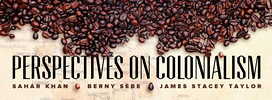I would like to thank my response authors Berny Sèbe and James Stacey Taylor for engaging so thoughtfully with my lead essay. While we are all against colonialism and argue against its reestablishment, each of the responses has raised interesting questions on the theory and practice of colonialism, two of which I would like to further examine here.
Sèbe elegantly lays out the intellectual faults in colonial ideology and argues that replicating colonialism—specifically the version prevailing between the early nineteenth century and World War II—would not be possible, mainly because “Historical events never repeat themselves exactly, and there is no reason why nineteenth-century European colonialism would be an exception.” This is true enough, but one of Gilley’s arguments was that colonialism is already taking place in the form of “euphemisms that avoid the ‘C’ word,” such as shared sovereignty, conservatorship, proxy governance, transitional administration, neo-trusteeship, and cooperative intervention (p.8). Stephen Krasner explains shared sovereignty as an arrangement between external entities and internal authorities that are designed to efficiently govern a shared territory. Similarly, transitional administrations are defined as temporary political arrangements in which an international organization, like the United Nations, assumes the responsibility of principal governance for a short period. Transitional administrations have been employed in East Timor, Bosnia-Herzegovina, Eastern Slavonia, Somalia, Kosovo, Iraq, and South Sudan. In 2004, James D. Fearon and David D. Laitin described neotrusteeship as “postmodern imperialism” because “these efforts involve a remarkable degree of control over domestic political authority and basic economic functions by foreign countries.” They used Bosnia, Kosovo, East Timor, Sierra Leone, and Afghanistan as examples and stated that such an arrangement could emerge in Iraq—as it has.
The question before us is twofold: Has Gilley misunderstood the fundamental basis of these arrangements? Though he has clearly misused literature, as documented in both response essays and elsewhere, Gilley does make a valid point here. Just because the term “colonialism” is not used to explain these new political arrangements and emergent orders, it does not mean that they are not colonial in nature. A broader concern then is: can sovereignty be shared without the exploitive system of colonialism emerging?
In his excellent response, James Stacey Taylor argues that colonialism can never be legitimate in practice, but can in theory. As such, he has challenged me on my understanding of libertarianism’s relationship with foreign rule. While I argue that one libertarian principle is “freedom from foreign rule,” Taylor argues that it is in fact more about being subjected to the rule of law. According to Taylor, “Libertarianism is concerned that persons be subject to publicly announced laws that protect the rights of, and bind, all members of the polity equally independently of their social position.” A government, therefore, is legitimate when all members, dominant and subordinate, accept the laws passed by it. So even if a government is established by a foreign entity, as long as the laws are accepted by all members of society, it is legitimate.
I agree with Taylor in part. Rule of law and equality under that law are important libertarian principles. But similarly important is that the people have a say in the nature and content of the laws that govern them. In systems of colonial and foreign rule, there is a divide between the governing class and the governed. And the governing class gets farther and farther away—geographically, culturally, linguistically, etc.—from the governed and therefore is far more likely to be abusive, discriminatory, or inconsistent with the preferences of the locality. Hence, even if the law is applied equally, libertarianism calls for it to be locally administered, subject to change according to the preferences of the population, and legitimated by the consent of the governed. Colonial and foreign rule tends not to meet those requirements. My question for Taylor is: how can foreign rule ever be legitimate theoretically? A broader concern is about the nature of foreign rule: can foreign rule ever be non-colonial?
Finally, even though Bruce Gilley’s controversial article has been retracted, when I first critiqued it, my goal was not for it to be retracted. As Taylor stated, “Such views should be rebutted—not retracted.” While it troubles me that retraction was due to death threats to the editor rather than faulty research and misinformation, it indicates how we all, scholars and non-scholars alike, remain sensitive to colonialism and its long-term consequences.

